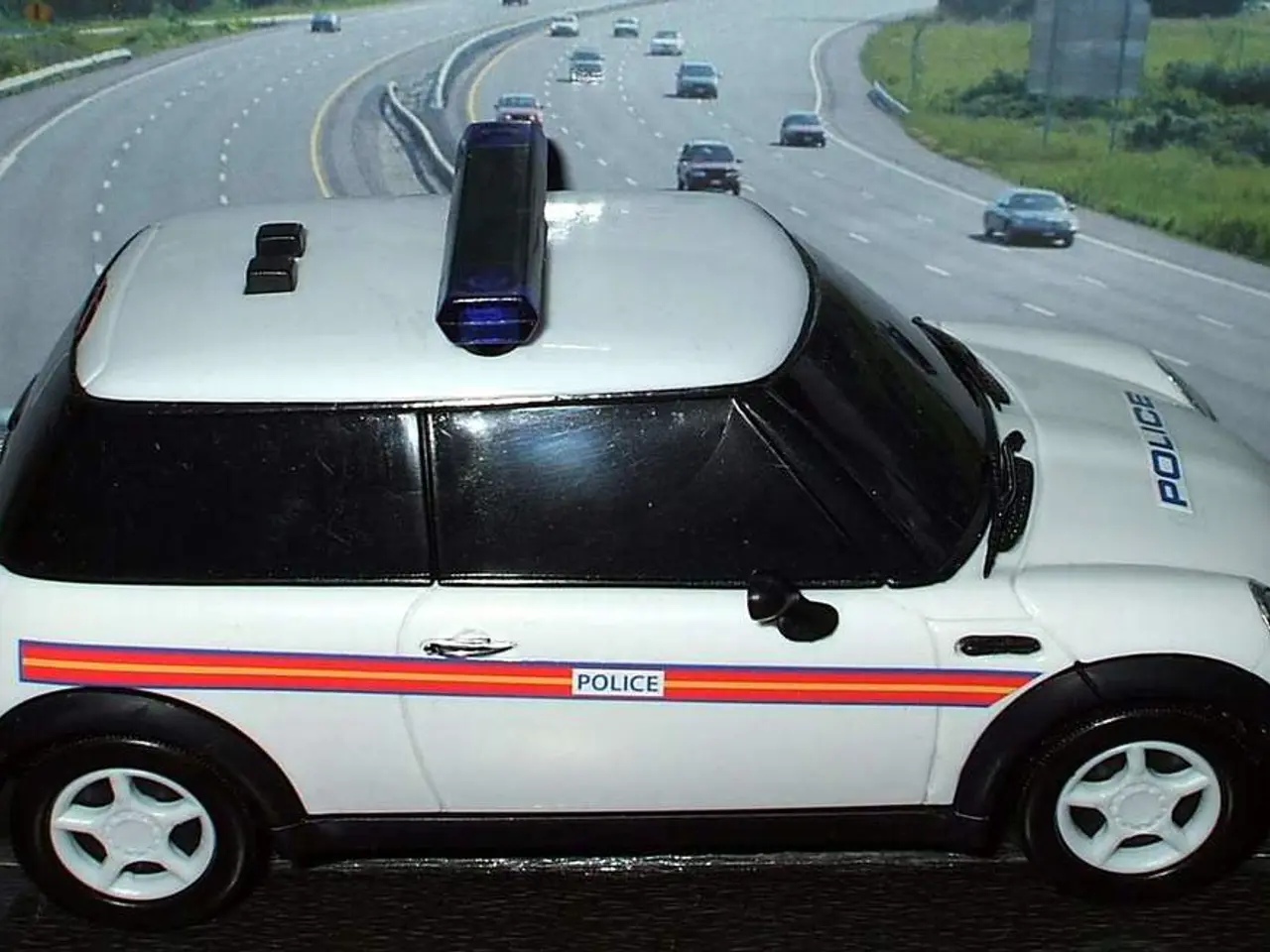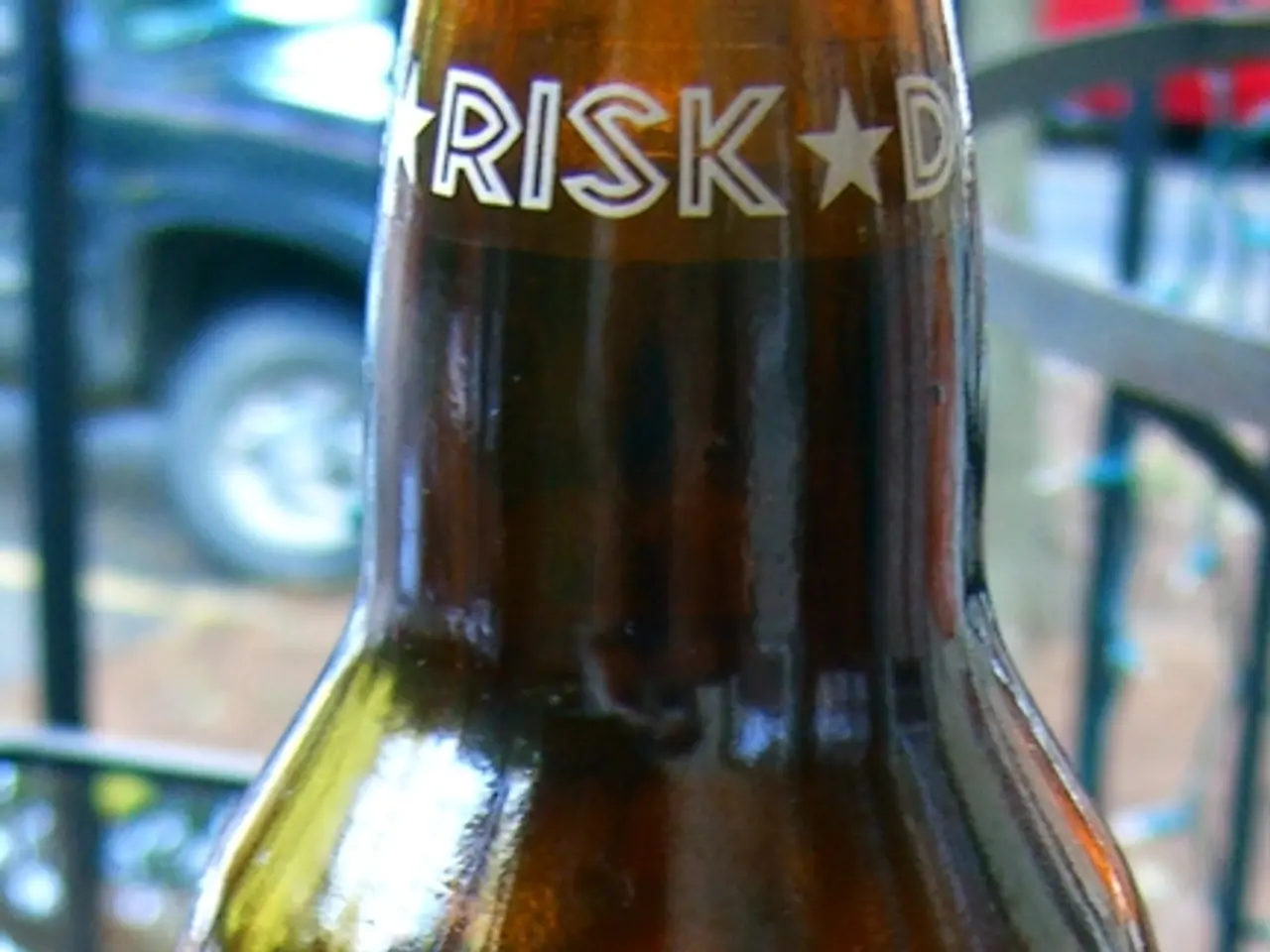Police Halts Speeding Vehicle Traveling at 110 km/h, Identified as Raser
Speeding Offenses in Wiesbaden, Germany: Enforcement During "Speed" Action Weeks
During "Speed" action weeks in Wiesbaden, enforcement measures typically include increased traffic police presence and speed checks at targeted locations to reduce speeding violations. These actions follow general German traffic safety campaigns.
On a typical day, as reported, officers from the 3rd police station conducted further checks in the evening, recording 14 speeding offenses between 11 am and 3 pm. During the same period, in the Biebricher Allee, eight vehicles were caught speeding between 10:05 pm and 11:10 pm.
One of the vehicles, a VW Golf, was clocked at 99 km/h, while another driver, in an Audi Q8, was stopped for speeding at 96 km/h by a motorcycle officer during the same checks. It is important to note that no additional drivers or vehicles were mentioned as facing a potential driving ban, beyond those already stated.
On Wednesday (6th August), a driver of a Lotus car was caught speeding at 110 km/h on the Theodor-Heuss Bridge heading towards Mainz. The speed limit on this bridge towards Mainz is 50 km/h, and both the drivers of the Lotus and Audi Q8 cars now face a potential driving ban.
However, no information was given about potential penalties for the drivers caught speeding in the Biebricher Allee. Furthermore, no further details were provided about the type, model, or color of the vehicles caught speeding in the Wiesbadener Veilchenweg or Biebricher Allee.
Speeding offenses in Wiesbaden, like in the rest of Germany, are categorized by the excess speed with corresponding fines, points, and possible driving bans. The fines and penalties escalate based on the degree of speeding.
For instance, up to 10 km/h over the limit, a fine of €20-€30 is applicable depending on whether the speeding occurs inside or outside an urban area. A driver exceeding the limit by 11-15 km/h would face a fine of €40-€50, and so on, with the penalties becoming more severe as the excess speed increases.
Local efforts to improve traffic safety and reduce vehicle speed can be seen in traffic trials like those on the Rhine banks in Wiesbaden, which create car-free zones, reroute traffic, or designate cycle lanes, indirectly aiding speeding control.
In summary, enforcement during Speed action weeks generally involves intensified speed monitoring and police controls to ensure compliance with speeding rules, following the national regulations. However, specific details about Wiesbaden’s enforcement during these weeks were not provided in the report.
[1] German Traffic Laws and Penalties, (n.d.), Retrieved from https://www.germany.info/us-en/service/road-traffic/1532336 [2] Wiesbaden's Rhine banks traffic trial, (2020, June 15), Retrieved from https://www.wiesbaden.de/stadt/verkehr-umwelt/stadtverkehr/stadtverkehrsprojekte/stadtverkehrsprojekte-2020/rhine-banks-traffic-trial/
- Enforcement of speeding laws in Wiesbaden, like general-news related to crime-and-justice, can lead to fines, points, and potential driving bans for offenders, as outlined in German Traffic Laws and Penalties.
- As sports cars like the Lotus and Audi Q8 were involved in speeding offenses, one might speculate about the impact of these incidents on road safety, following traffic-related general-news reports.






